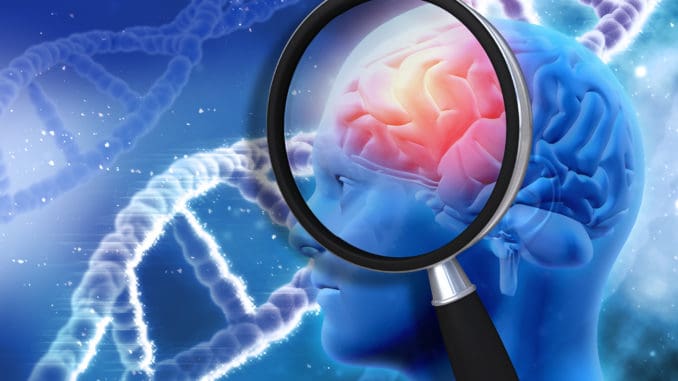
[cmamad id=”22654″ align=”center” tabid=”display-desktop” mobid=”display-desktop” stg=””]
This one activity naturally increases myokine in the brain and improves memory and brain power…
—-Important Message—-
Strengthen the Brain-Penis Connection to Regain 20% More Feeling Down There
When I talk to a guy who can’t get erections, I always show him how he can get things going down there with the brain-penis connection.
It’s really easy – the guy realizes that he has lost a lot of feeling in his penis.
I tell the guy about the simple change in focus that rewires the brain-penis connection and fixes desensitization overnight.
This works because the brain recruits new pleasure centers when you focus on this one thing for just a few seconds at a time.
So right away, men start feeling up to 20% more pleasure and sensation in their penis. It makes sex so much better than before.
This change in focus worked for my friend, Yuri. And it actually saved his life.

———-
This Myokine in the Brain Saves Men from Alzheimer’s Disease
For decades, researchers didn’t know how exercise helps reduce Alzheimer’s.
Recent experiments identified a brain chemical called BDNF as being partly responsible for the benefit provided by exercise.
If you can raise your BDNF, you can maintain a much higher level of thought and mind.
And now new research has identified another compound called irisin that can raise BDNF – and prevent Alzheimer’s.
Aside from helping us understand more about the Alzheimer’s/exercise interaction, this research could lead to the development of new treatments.

These researchers did animal experiments at Queen’s University in Canada and the Federal University of Rio de Janeiro in Brazil. The journal Nature Medicine published the results.
The research centered around irisin, which is released by the body during exercise.
“Irisin was recently identified as a myokine released into the circulation on physical exercise.”
It increases the levels of brain-derived neurotrophic factor (BDNF), and BDNF is already known to protect the brain from Alzheimer’s.
“Irisin stimulates the expression of brain-derived neurotrophic factor (BDNF).”
These links raised interest in irisin for Alzheimer’s researchers.
“This raises the possibility that irisin could play a protective role in brain disorders such as Alzheimer’s disease.”
The researchers had to develop techniques that could detect the amount of irisin in the brain.
And they proved that animals with Alzheimer’s disease had lower levels of irisin.
They found that people with Alzheimer’s disease had lower levels of irisin in their brains too.
“We show that irisin levels are reduced in Alzheimer’s brains and cerebrospinal fluid, and in experimental Alzheimer’s animals.”
[cmamad id=”22655″ align=”center” tabid=”display-desktop” mobid=”display-desktop” stg=””]
The next part of the research involved taking healthy mice and lowering the levels of irisin in their brains.
They did this by using specially engineered viruses.
When the researchers lowered the levels of irisin in otherwise healthy mice, they began to show signs of Alzheimer’s disease.
“Knockdown of brain irisin impairs long-term potentiation and novel object recognition memory in mice.”
In the next part of the research, they boosted the levels of irisin.
Then they tried to create Alzheimer’s in the experimental animals.
High levels of irisin protected lab animals against symptoms of Alzheimer’s disease.
“Boosting brain levels of irisin rescues synaptic plasticity and memory in Alzheimer’s disease mouse models.”
The researchers then investigated whether blocking irisin could prevent the beneficial effects of exercise on Alzheimer’s progression.
The experiment shows that the beneficial effects of exercise are dependent on irisin.
“Blockade of irisin attenuates the neuroprotective actions of physical exercise on synaptic plasticity and memory in Alzheimer’s disease mice.”
The research identifies irisin as being critical for the beneficial effect of exercise on Alzheimer’s risk and progression.
“Irisin is an important mediator of the beneficial effects of exercise in Alzheimer’s disease models.”
Exercise boosts irisin levels.
But the researchers also proved that other methods of increasing irisin can protect the brain against Alzheimer’s disease.
“Our findings place irisin as a novel agent capable of opposing synapse failure and memory impairment in Alzheimer’s disease.”
Irisin can rescue damaged synapses, allowing brain cells to communicate more effectively.
Researchers believe this is why irisin improves memory in animals (and probably people).
Alzheimer’s is generally associated with advanced age.
As such, most Alzheimer’s patients also suffer from other age-related diseases such as arthritis, heart disease, obesity, and diabetes.
Exercise is effective in increasing irisin.
But for many Alzheimer’s patients exercise is very difficult or impossible.
Finding a safe method to increase irisin without the need for exercise could be a major breakthrough in Alzheimer’s treatment.
You should always consult a healthcare practitioner by treating and diagnosing health-related problems.
—-Important Message About Preventing Alzheimer’s without Exercising—-
I’ve discovered an even easier way for men to protect their brains from Alzheimer’s disease…
All you have to do is take a pinch of this common household ingredient.
You probably already have it in your kitchen right now.
And if you don’t, it costs less than $1 at the grocery store.
It has over 100 years of proven worth – and it is the reason that the Japanese and Okinawans have almost no Alzheimer’s.
They use this kitchen ingredient every day (in one form or another.)
———-

- Exercise-linked FNDC5/irisin rescues synaptic plasticity and memory defects in Alzheimer’s models https://www.nature.com/articles/s41591-018-0275-4
- A Review on the Role of Irisin in Insulin Resistance and Type 2 Diabetes Mellitus https://www.ncbi.nlm.nih.gov/pmc/articles/PMC6104716/
- 'Exercise hormone' found to target key bone cells https://news.harvard.edu/gazette/story/2018/12/exercise-related-hormone-irisin-found-to-target-key-bone-cells/
